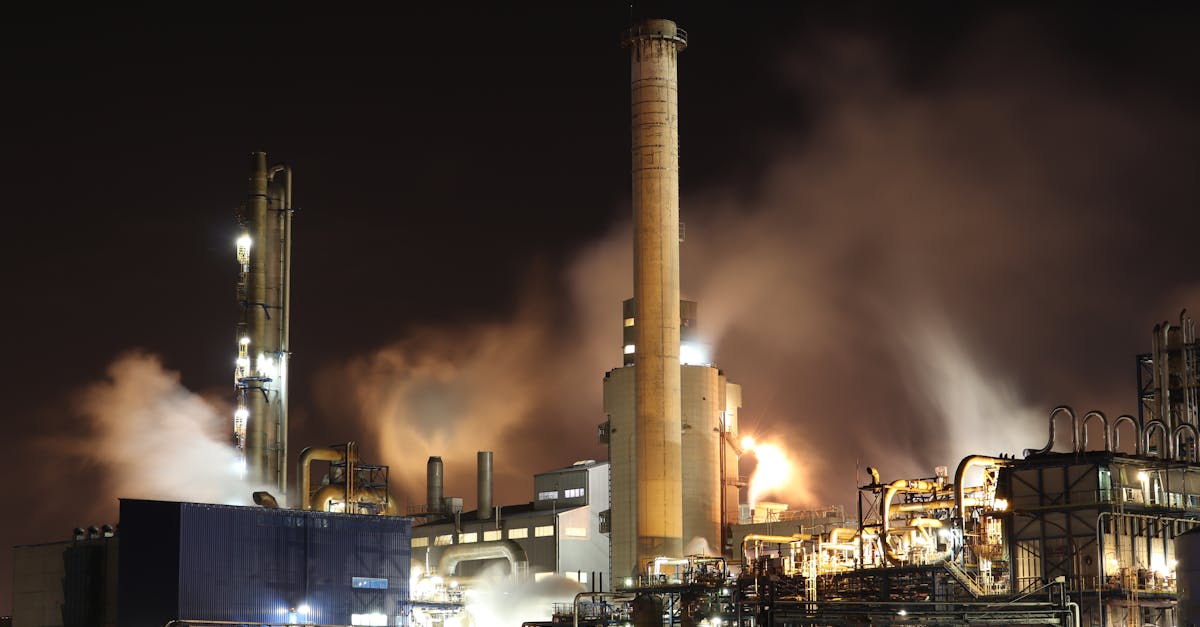Climate Change Update and Global Impact
Introduction
Climate change is an urgent and all-encompassing planetary challenge affecting societies everywhere. Rising temperatures, frequent storms, and shifting rainfall patterns characterize this change, which humanity faces due to increased greenhouse gas emissions. Historically, industrial activities have been primary contributors, burning fossil fuels like coal, oil, and gas. Global initiatives aim to curb emissions and spearhead sustainable practices, yet the task remains colossal. As policymakers and scientists strive to engage public interest, it is critical to understand the wide-ranging impact of climate change. This article seeks to unpack recent updates and their global repercussions.
Advertisement
Carbon Emissions and Their Impact
Carbon emissions from human activities are at the heart of climate change and have reached historically high levels. These emissions trap heat within the earth's atmosphere, creating a 'greenhouse effect.' As a result, global temperatures are climbing, which disrupts natural weather patterns and can lead to more extreme climate events, such as hurricanes, droughts, and floods. Efforts to reduce carbon footprints involve transitioning from fossil fuels to renewable energy sources like solar, wind, and hydroelectric power. The Paris Agreement aims to limit global warming to below 2°C above pre-industrial levels, illustrating the worldwide commitment to combating this crisis. However, challenges like political inertia and economic dependency on fossil fuels hinder significant progress.
Advertisement
Melting Ice Caps and Rising Sea Levels
Glaciers and polar ice caps are shrinking at unprecedented rates, contributing to global sea-level rise. This phenomenon threatens coastal cities and island nations, where the risk of flooding and erosion increases significantly. Data from the Arctic reveals warming at twice the rate of the global average, causing accelerated ice melt. Crucially, this impacts marine ecosystems and indigenous communities that rely on these regions for habitation and sustenance. Mitigating these effects requires significant international cooperation, prioritizing conservation, and adopting practices that minimize ice cap depletion. As sea-level rise continues, adaptation strategies like constructing barriers and encouraging managed retreats gain prominence in vulnerable areas.
Advertisement
Biodiversity Loss and Ecosystem Change
Rapid climate change threatens biodiversity, leading to the potential extinction of various species and alterations in ecosystems. Habitat loss, temperature fluctuation, and altered food chains place immense pressure on wildlife. As habitats degrade, species struggle to adapt or migrate to compatible environments, resulting in a loss of ecological balance. The disappearance of keystone species can yield cascading effects across ecosystems, furthering the degradation. Researchers emphasize conserving biodiversity by protecting habitats, restoring ecosystems, and integrating climate adaptation plans into biodiversity management. Maintaining ecological diversity ensures the sustainability of natural resources critical to human livelihoods.
Advertisement
Global Weather Extremes and Agricultural Impact
Climate change drives more extreme weather events, significantly affecting global agriculture and food security. Prolonged droughts, intensified storms, and irregular rainfall disrupt crop production and water supply. Farmers face challenges such as reduced yields, soil erosion, and increased pest prevalence due to environmental shifts. In response, advances in agricultural technology, climate-resilient crops, and ecological farming practices offer sustainable solutions. International bodies, like the Food and Agriculture Organization, advocate adaptive measures and policy support to safeguard the agricultural sector, reinforcing food security on a global scale. Enhancing agricultural resilience is vital for sustaining the growing global population.
Advertisement
Economic Consequences and Market Challenges
Natural disasters fueled by climate change have financial implications, affecting industries and economies alike. Damages to infrastructure, resource scarcity, and increased insurance costs burden economies, disproportionately affecting developing countries with limited resilience. Various sectors, from agriculture to tourism, face vulnerabilities that necessitate adaptive strategies and sustainable business practices. Financial initiatives like carbon pricing, incentivizing green technologies, and investing in climate-resilient infrastructure highlight potential mitigation avenues. As climate-related economic challenges grow, global collaboration and policy innovation remain essential for promoting stability.
Advertisement
Health Implications of Climate Change
Climate change's ramifications extend to human health, exacerbating existing health conditions and spawning new threats. Rising temperatures contribute to heatwaves, impacting cardiovascular and respiratory health. Additionally, changes in climate affect vector habitats, influencing diseases like malaria and dengue fever. Poor air quality, owing to increased fossil fuel combustion, aggravates respiratory issues, especially in urban areas. Reducing emissions, improving health infrastructure, and promoting public awareness emerge as proactive health strategies. Public and private sector partnerships are key to developing health systems responsive to climate threats.
Advertisement
International Policy and Collaborative Efforts
Addressing climate change necessitates cooperative international policy and environmental diplomacy. The United Nations Framework Convention on Climate Change (UNFCCC) rallies nations to commit resources to mitigation and adaptation strategies. While agreements like the Kyoto Protocol and Paris Agreement illustrate progress in international dialogue, enforcement and commitments differ among countries. Technological collaboration, knowledge sharing, and mutual support are vital in overcoming these challenges. By fostering innovation and equitable policy frameworks, nations can accelerate sustainable transitions, ensuring long-term ecological and societal benefits.
Advertisement
Technological Innovation and Future Prospects
Technological advancements represent a cornerstone in addressing climate change, offering novel solutions for a sustainable future. From carbon capture and storage techniques to green energy innovations, technology enhances mitigation efforts across sectors. Research in sustainable transportation, agriculture, and urban development promises significant emissions reductions and improved efficiency. Public-private collaborations and investments fund these technologies, driving innovation forward. As these advancements reach fruition, aligning technological progress with policy frameworks ensures comprehensive climate action. Promoting sustainable practices and investing in green technology will shape the future trajectory of climate change mitigation.
Advertisement
Conclusion
Climate change presents a profound challenge, with far-reaching impacts affecting every facet of life as we know it. Its effects on global temperatures, ecological balance, human health, and economic stability underscore an urgent call for action. As international and local communities work collectively to transition to sustainable practices, the role of technology and policy adaptation becomes increasingly significant. While challenges remain, the cooperative global momentum emphasizes hope and resilience in tackling climate change. Integration of innovation and shared responsibility holds the potential to create a sustainable and equitable global future.
Advertisement


